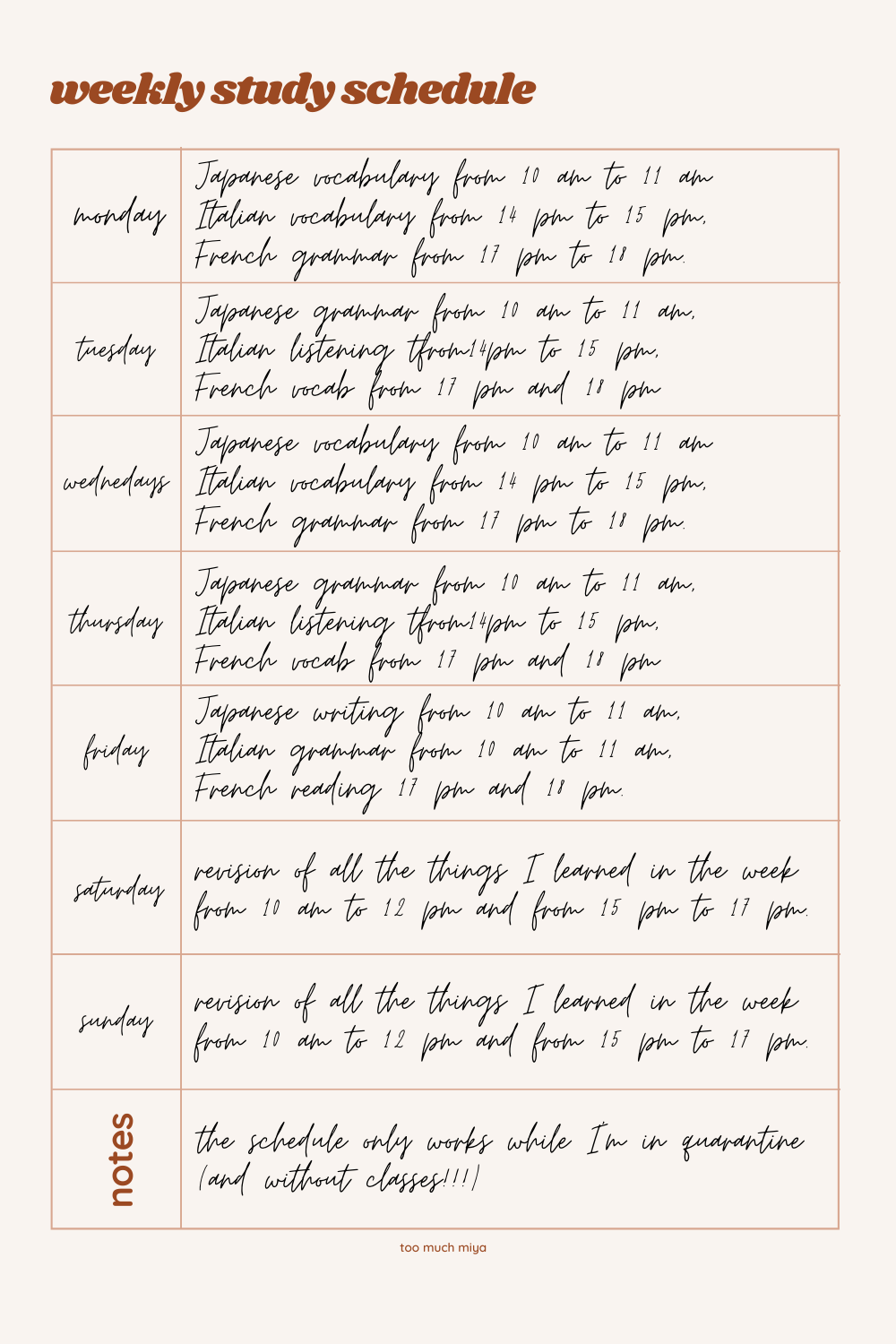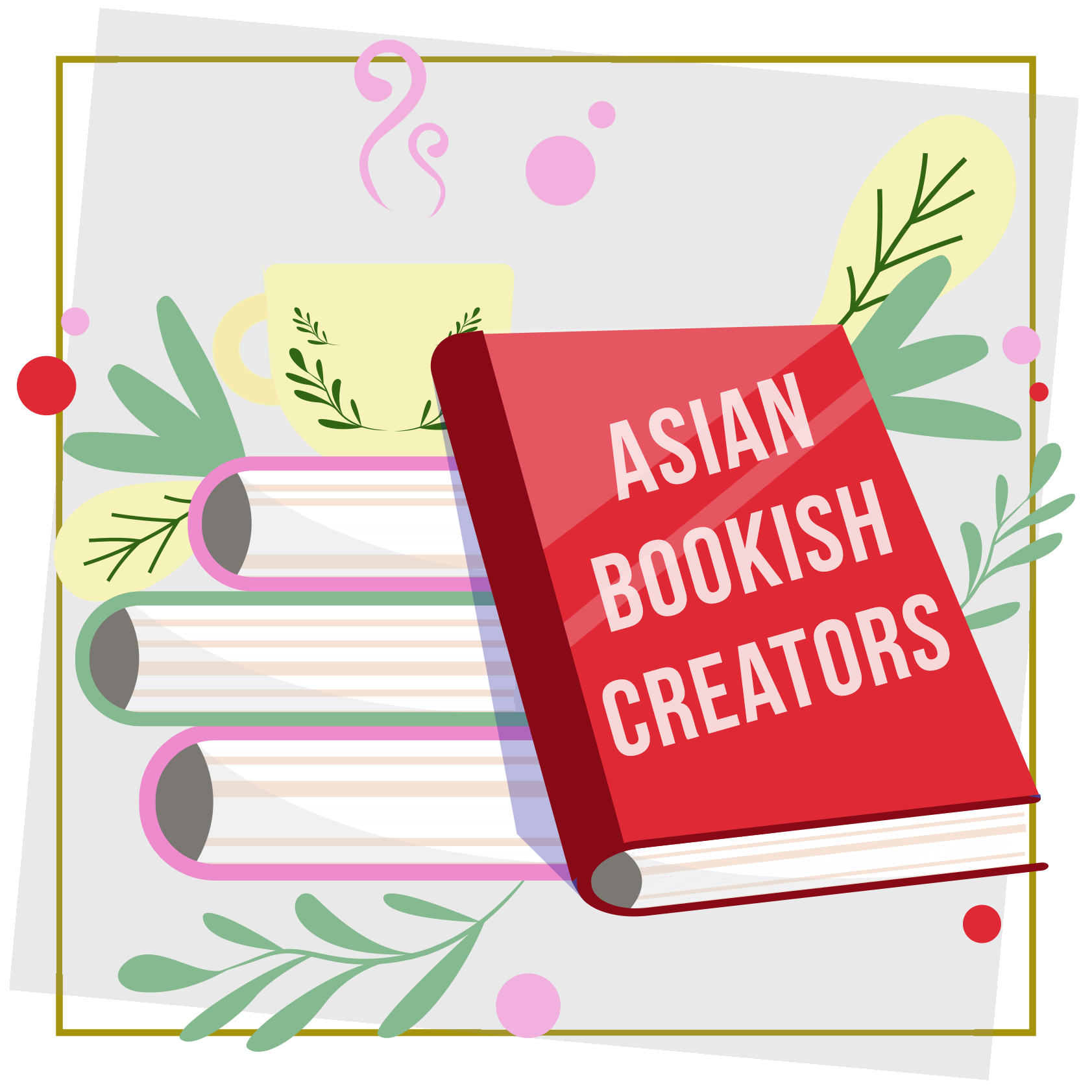how I learn languages from scratch (+free language learning starter pack)
Hi! In this post, I'll guide you through all the steps to learn a new language from scratch (the ones that work for me, of course) and present to you a free printable pack to help you start studying!
Well, beyond books, another passion of mine is languages. I didn't grow up bilingual or in a country known for having multiple languages. Regardless, in 16 years I managed to learn three languages, and now, at 18 years old, I'm learning three more while maintaining the ones I already know as well.
The languages I know are:
- Portuguese, the official language of Brazil, the country I was born and raised in.
- English, which I learned at 12 because it was everywhere. In the books I loved, the films I watched, the songs I listened to.
- Spanish, which (as I previously talked about) I learned at 15 while in High School (because of Latin America films and an incredible teacher).
The Languages I'm currently learning are:
- Japanese, because I'm half Japanese and I always regretted not having learned it sooner.
- French, because I think it's pretty (yes, I'm shallow like that) and also because of the movies (as you can see, I'm a huge fan of cinema).
- Italian. Well, this language I picked up while bored in quarantine because it's relatively easy (since I know Portuguese, Spanish, and a bit of French already) and quite fun.
Anyway, this backstory is important because I study all these languages by myself, at home (mostly) and very cheaply. So, how do I do it? In short, I buy used textbooks, watch a lot of films/series, listen to songs, and practice with different people. In long, well, I go through these steps to learn a language from scratch.
Setting goals
First, I need to know what my goals for the language are. Do I want to be conversational? Do I want to use it academically? Do I want to pass a proficiency test? In the case of Spanish, for example, I wanted to be able to watch movies without subtitles and maintain a conversation with a native speaker (so basically an intermediate level), but for French, I want to be able to read academic articles (not there yet) and pass the DELF.
First, I need to know what my goals for the language are. Do I want to be conversational? Do I want to use it academically? Do I want to pass a proficiency test? In the case of Spanish, for example, I wanted to be able to watch movies without subtitles and maintain a conversation with a native speaker (so basically an intermediate level), but for French, I want to be able to read academic articles (not there yet) and pass the DELF.
It all depends on what do you want to use the language for, and it's important to outline the major goals in advance so you know which way you need to go and what things to prioritize.
After that, I set my goals monthly. I make them achievable and write them down so I can have physical evidence to motivate me.
For example, my goals for Italian (which is a language I'm learning just for fun) in July are:
- learn 200+ words of vocabulary;
- master the presente dell'indicativo (simple present).
For Japanese, a language I'm learning more seriously, my goals are:
- get halfway through the textbook;
- learn 20+ kanjis
- improve my handwriting.
- learn 500+ words of vocabulary.
All of these goals I can achieve within the month and each of them has a clear purpose.
Research and resources
After I set my goals for the language (both monthly and in general) it's time to do some research. What is the language's alphabet? How similar it is to the languages I already know? What courses/textbooks are best for learning it? What sites are useful? What films/books in that language seem interesting? I ask myself all of those questions and then list all the resources I'll need (and some others that are fun) and note them down by type. Then, I buy some stationary to start studying.
I generally buy the essentials: a notebook and a textbook (after watching tons of reviews on youtube so I know it's good) and then work my way from there. For French, I bought a used Alter Ego A2 (because I already had some knowledge of the language) for less than $10 dollars and I found it to be great for studying.
I also like to watch Damian Dominique's channel because he teaches some slang/expressions I can't find on textbooks.
Oh, and for Japanese, I bought a textbook, a notebook, and a kanji calligraphy notebook, since I had to learn the three alphabets.
Schedule
After I know what language I'll be learning, why I'll be studying it and how, it's time for the when.
After I know what language I'll be learning, why I'll be studying it and how, it's time for the when.
This is the part people get stuck at the most, but I can't stress this enough: having a proper schedule it's extremely important. Even if it's only 20 minutes a day, it's better than cramming up a 2-hour study session twice and never doing it again for three weeks (it has happened to me before). Keeping a steady pace is the thing that will make you improve the most.
In my case, my quarantine schedule looks like this:
For English and Spanish, I read books and watch movies (and write blog posts) throughout the week because I'm already satisfied with my level in both of those languages and I'm only interested in maintaining it.
Of course, this schedule only works because I'm not having any other classes and once I start university in the fall I'll have to come up with a new one, but I'll worry about it later.
Planning study sessions
how to study grammar
And then what?
Well, all of those steps can get you, in time to a reasonable level of a language. However, to improve even further, you have to actually speak the language.
I was very lucky because my sister and I were study partners for both English and Spanish so I'd practice with her all the time before beginning conversations with native speakers. For French, I took some free classes at a community center some months ago and I still keep in contact with the teacher and other students, which is also great to reach a conversational level. For Japanese, I have a huge part of my family I can practice with and for Italian, well, I'm not at that level yet.
However, there are all kinds of resources on the internet to help a student improve in a language. I'm talking youtube videos with listening practices, apps that allow you to talk to a native person, free (or cheap) classes online, and even Google Translate!
Learning a language is an extensive project of life, it never ends and can be very tiring sometimes. Nevertheless, the rewards of knowing a second, or a third, or fourth, etc language is immeasurable!
So, that's officially how I learn a language! Hopefully, it'll help you do it too, but note that I'm not a teacher or a language professional of any kind, I'm just a polyglot who has experience learning languages by herself.
When I first started studying languages by myself, I'd get in front of the desk and waste precious time thinking about what to study for the day. This behavior is not just disorganized, it's ineffective.
The best way I found to optimize my study sessions and be more productive (even if I only have twenty minutes) is planning beforehand. And for that, there are three (well, four) important points to consider.
First, a to-do list that covers every exercise, verb tense, new expressions/vocab you want to cover
Second, a project. A project is the main subjective you want to go through It doesn't have to be done in only one study session, but it's important you write what it is. I also like to add the materials I'll be using to complete the project.
Thirdly, the goals. They can't be anything big (or the same as your monthly goals), they have to be accomplished within the study session otherwise it won't work.
And, lastly, it's important to take notes, make observations, for your future self in other study sessions.
In my case, this is my planning Japanese study session from some days ago.
TO DO
- Go through the food vocabulary list again
- Finish chapter 5
- Write five sentences with the vocabulary words.
PROJECT
- Chapter 5 of the textbook covers restaurant and food vocabulary, some politeness expressions, currency, and numbers vocabulary, and three more grammar rules. I plan to finish it in this study session.
- I'll be using my notebook, the textbook, the food vocabulary list plus the menu in Japanese I downloaded from google images.
GOALS
- Read a menu in Japanese
- Be able to write the sentences confidently
- Call grandma and talk to her about food!
NOTES
- grandma loved talking about food! There are six more words of vocabulary she taught
- review this lesson before going to a restaurant just in case.
So, as you can see, the study session was very productive! I planned it the night before and wrote the 'notes' afterward. You may notice I mixed a bit of vocabulary and grammar and that's fine! I usually do this when the topic involves both (and I have the time).
some practical tips
To study grammar, what I like to do is write the rule and then some example sentences beside it, so it's easier to memorize it.
how to study vocabulary
Well, the vocabulary it's a bit more difficult. Usually, I separate words by topic, then I write the definition and pronunciation. Then later, I rewrite the word plus a couple of sentences (again, to memorize it faster).
Here's an example:
absolument pouvez-vous me dire votre nom et votre numéro de téléphone s'il vous plait? Absolutement!
And then what?
Well, all of those steps can get you, in time to a reasonable level of a language. However, to improve even further, you have to actually speak the language.
I was very lucky because my sister and I were study partners for both English and Spanish so I'd practice with her all the time before beginning conversations with native speakers. For French, I took some free classes at a community center some months ago and I still keep in contact with the teacher and other students, which is also great to reach a conversational level. For Japanese, I have a huge part of my family I can practice with and for Italian, well, I'm not at that level yet.
However, there are all kinds of resources on the internet to help a student improve in a language. I'm talking youtube videos with listening practices, apps that allow you to talk to a native person, free (or cheap) classes online, and even Google Translate!
Learning a language is an extensive project of life, it never ends and can be very tiring sometimes. Nevertheless, the rewards of knowing a second, or a third, or fourth, etc language is immeasurable!
So, that's officially how I learn a language! Hopefully, it'll help you do it too, but note that I'm not a teacher or a language professional of any kind, I'm just a polyglot who has experience learning languages by herself.
To assist you, I'm also making a language learning starter pack available, in which you will find printables to guide through all of the steps (and tips!) I wrote in this post. Get the archive for any price you see fit by clicking in this link or just scroll down the page a bit.
If you enjoy my content, make sure to follow me for more! I have all kinds of tips to share here, and I'll do it soon enough! Also, feel free to buy me ko-fi or check out other free printables of mine. It helps me a lot!
till next time!










3 comentários
Find high-quality Spare Parts For Tata vehicles at Partsmith. We offer durable, reliable, and affordable components to keep your Tata cars and trucks running smoothly.
ReplyDeleteBoost your warehouse efficiency with the TOYOTA F30H FORKLIFT offered by Partsmith. Built for precision, safety, and smooth handling, this forklift is perfect for lifting heavy loads effortlessly. Toyota forklifts are known worldwide for dependability and performance. Choose Partsmith for used forklifts that deliver long-lasting value and exceptional results for diverse material handling needs.
ReplyDeleteFantastic article. The explanation is straightforward and helpful for beginners as well as experienced readers. Keep up the great work and continue publishing valuable posts. VW Spare Parts Online
ReplyDelete